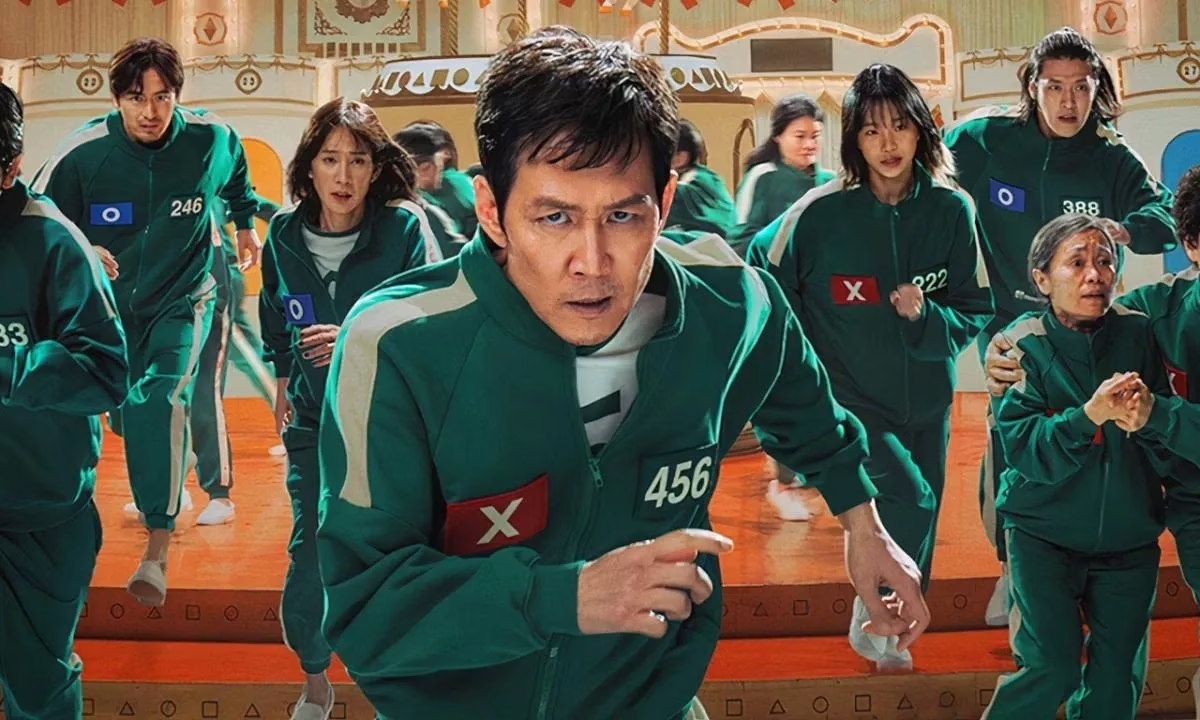When the second season of Squid Game premiered, reactions from fans were anything but uniform. Some embraced the heightened intensity, packed with new characters, intense drama, and even more shocking violence. Others, however, felt the overall tone was excessively grim. For viewers hoping for a softer touch in the upcoming third and final season, it might be wise to turn to a lighter fare like Emily in Paris instead.
“The tone is going to be darker and more desolate,” series creator Hwang Dong-hyuk explains through an interpreter. “I see a world with diminished hope and wanted to delve into themes like, ‘What is humanity’s last resort? Do we have the will to leave something better for future generations?’ After finishing all three seasons, I hope viewers will ask themselves, ‘What kind of humanity do I have left in me?’”
This ambitious intent is notable for a series that has become a hallmark of Netflix and a defining cultural touchstone of the 2020s. Despite being a non-English show, it set global viewership records, and earlier this year, Netflix even debuted Squid Game: The Challenge, a reality competition offering a staggering $4.5 million prize. However, Squid Game is infamous for its graphic violence, with gruesome deaths depicted in almost every episode—characters are regularly teetering on the brink before they are executed by the ominous pink-suited guards.
Given the show’s monumental success, it’s surprising that it will conclude after just three seasons. In contrast, Netflix’s Stranger Things will have taken five seasons to tell its story over nearly a decade. Lee Jung-jae, who portrays the protagonist Gi-hun, recalls that Hwang initially envisioned the series as a limited run. “He told us Squid Game was a one-off,” Lee says, “but the overwhelming love from fans around the world compelled him to continue.”
While the first season shocked audiences with its stark contrasts—childlike playgrounds marred by bloodshed—the second season raised the stakes further with intriguing new characters, including Thanos, a quirky and violent rapper, and Kang No-eul, a North Korean defector.
Despite the criticisms leveled at the second season, Lee notes that changes to the third season were unavoidable, as the two previous seasons were filmed back-to-back. “The overarching themes of Squid Game are significant,” he emphasizes. “Rather than ‘fixing’ the story, we aimed to convey its essential messages. Season three will introduce new games, characters, and unexpected twists, all while remaining thoughtful.”
The series continues to explore issues of violence and capitalism, but in its final chapter, it delves deeper into themes of vengeance and moral complexity. Hwang acknowledges that this grim narrative may clash with audience preferences. “People like happy endings,” he admits, “and so do I. But sometimes a story doesn’t allow for one. Forcing a happy ending compromises its essence. If a narrative reflects reality, it won’t always offer a joyful conclusion, and Squid Game is no exception.”
As for fans’ reactions to the finale, Lee keeps details under wraps but shares his perspective: “The ending took even me by surprise, so I suspect many fans will be caught off guard. It’s bound to spark plenty of discussions, and I can’t wait to hear what everyone thinks.”
Filming the two seasons sequentially was no easy feat for Lee. “It was a grueling experience, spanning over a year,” he recounts. “I immersed myself in the character, even without the comfort of good food to lift my spirits because I was on a strict diet!”
Playing Gi-hun, a character evolving from an ordinary man to a resilient hero, excites Lee. “Gi-hun is perpetually under pressure,” he explains. “His frustrations grow as his attempts seem futile. It’s fascinating to portray someone who undergoes such a profound transformation.”
The show’s harrowing scenes, with characters meeting horrific ends, can feel desensitizing, a notion Lee disputes. “I hope viewers don’t become numb to the violence,” he says. “Every character has a tragic backstory worth mourning.”
Interestingly, while Squid Game critiques capitalism, its many promotional partnerships, including collaborations with McDonald’s and Uber, raise eyebrows, especially given those companies’ histories. Hwang reflects, “At its core, Squid Game was created as a commercial product. It’s a stretch to criticize the desire to profit from a critique of capitalism. Ultimately, if I felt the marketing efforts undermined the show’s spirit, I might have reservations, but I wouldn’t overstep in telling Netflix what to do.”
Looking ahead, Hwang doesn’t dismiss the idea of exploring the Squid Game universe further. “I don’t want to close the door entirely,” he shares. “There are still untold stories. I might consider a spin-off, focusing on what the villains were doing during the three-year gap between seasons one and two. That opens up a wealth of fascinating ideas.”
Meanwhile, there’s buzz about a potential U.S. remake in the works by acclaimed director David Fincher. Hwang, a long-time admirer of Fincher’s work, is eager to see how it unfolds. “If that happens, I welcome it wholeheartedly.”
For now, devoted fans can look forward to the final chapter of Squid Game, which promises to be as controversial and riveting as its predecessors. “People are incredibly curious,” Lee notes, “Many have approached me for spoilers, but I tell them—if you want to enjoy season three, just hold on tight; it’s on its way.”
Squid Game Season Three premieres on Netflix on June 27.













